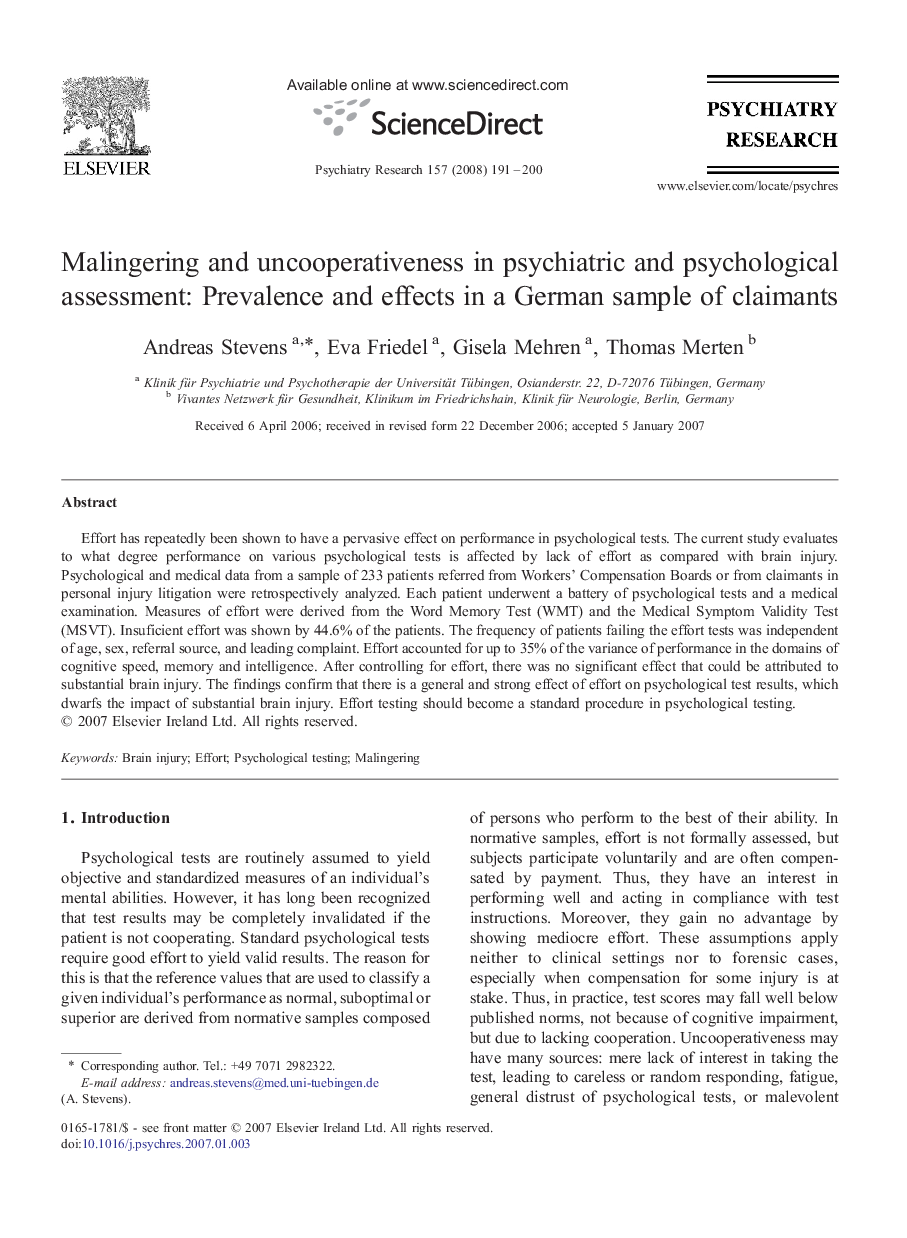| Article ID | Journal | Published Year | Pages | File Type |
|---|---|---|---|---|
| 334165 | Psychiatry Research | 2008 | 10 Pages |
Effort has repeatedly been shown to have a pervasive effect on performance in psychological tests. The current study evaluates to what degree performance on various psychological tests is affected by lack of effort as compared with brain injury. Psychological and medical data from a sample of 233 patients referred from Workers' Compensation Boards or from claimants in personal injury litigation were retrospectively analyzed. Each patient underwent a battery of psychological tests and a medical examination. Measures of effort were derived from the Word Memory Test (WMT) and the Medical Symptom Validity Test (MSVT). Insuficient effort was shown by 44.6% of the patients. The frequency of patients failing the effort tests was independent of age, sex, referral source, and leading complaint. Effort accounted for up to 35% of the variance of performance in the domains of cognitive speed, memory and intelligence. After controlling for effort, there was no significant effect that could be attributed to substantial brain injury. The findings confirm that there is a general and strong effect of effort on psychological test results, which dwarfs the impact of substantial brain injury. Effort testing should become a standard procedure in psychological testing.
